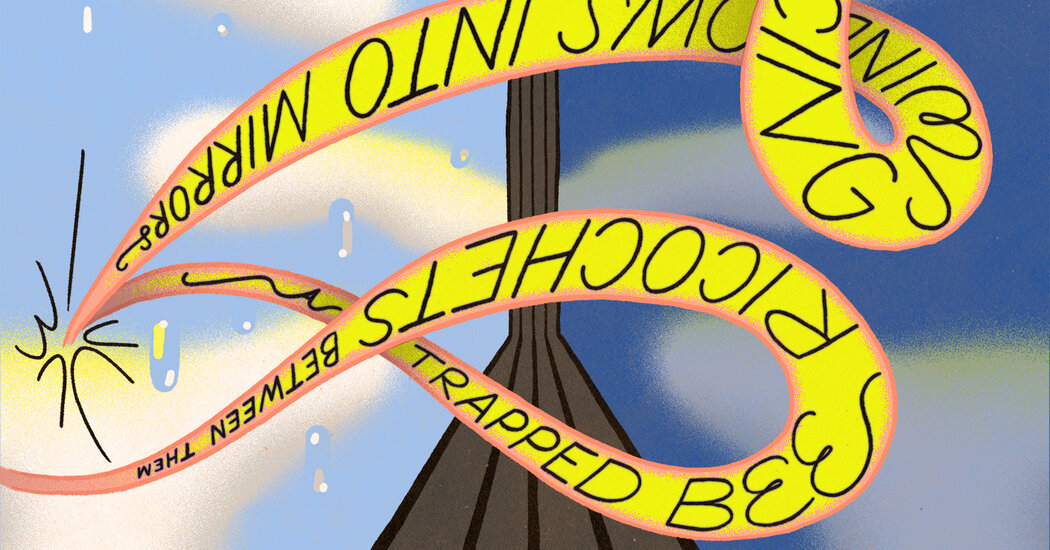The perniciousness of racist doublespeak and the trick-mirror of double consciousness is reflected in a pattern of doubles in Youn’s book, starting with the title itself. The volume opens with a series of double exposures that work like an optometrist’s exam, bringing their paired subjects into and out of nearness and likeness, studies of Orpheus and Eurydice, Midas and Marigold, Echo and Narcissus: “‘I want/want I’ — the mirror/that makes two.” More than choosing sides between paired antagonists, Youn seems interested in the live wire of desire and intimacy, the locking of sightlines that produce violently ultimate experiences, as when King Midas’ curse reflects back on himself:
He takes a deep breath in.
Aspiration.
A nebula of gold stars swarms into his open mouth.
Gold spangles the moving darknesses of his blood, his lungs.
Even the rivers in this country pave their streets with gold.
This final image reveals the hidden subject of this poem, America, as a mirage-like site of aspiration, and aspiration as the double site of hope and (fatal) breath. America’s chimerical association with gold evokes the motive both for its initial genocidal conquest and for subsequent waves of hopeful immigrants, including those Chinese who figured the California of the Gold Rush as gam saan, Gold Mountain. In this passage, the gold that clots Midas’ throat serves as an ironic double for Gold Mountain’s actual surplus — exploitation, exclusion and death.
Youn is Korean American, and a persistent concern of “From From” is her attempt to precisely register and reckon with her position as the Asian American daughter of immigrants, raised in Houston. This is most explicit in a sequence of eight “deracinations,” narrative poems that sonically sift through anecdotes from the poet’s youth. Confronting her own racialization and misapprehension by her white peers means becoming more fluent in the terms of their racism than they are. The child Youn must learn…
Read the full article here





